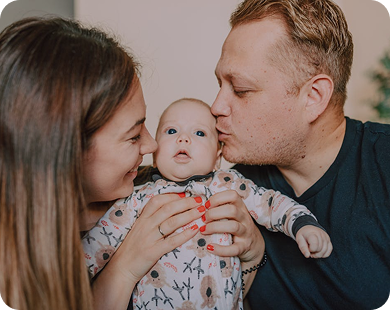If you're considering egg sharing as part of your fertility journey, you're probably wondering whether participating in a shared cycle could impact your own chances of success. The short answer is that when properly managed by experienced fertility specialists, shared cycles should not negatively affect your individual success rates—and in some cases, they may even offer certain advantages.
Understanding Shared Cycles in Fertility Treatment
A shared cycle, also known as egg sharing, is an arrangement where you donate some of your eggs to another patient while keeping the remaining eggs for your own IVF treatment. This collaborative approach allows both you and the recipient to benefit from a single stimulation cycle.
During your ovarian stimulation, your fertility specialist aims to retrieve multiple mature eggs. In a shared cycle, these eggs are divided between you and your recipient according to predetermined protocols that prioritize your treatment needs.
| Aspect | Traditional IVF | Shared Cycle |
|---|---|---|
| Egg allocation | All eggs for your use | Eggs split between you and recipient |
| Treatment costs | Full cost responsibility | Reduced costs through sharing |
| Stimulation protocol | Optimized for you alone | Optimized for both participants |
| Success dependency | Based on your response only | Requires good response from donor |
How Shared Cycles Are Designed to Protect Your Success
Reputable fertility clinics implement strict protocols to ensure that participating in egg sharing doesn't compromise your treatment outcomes. These safeguards are built into every aspect of the shared cycle process.
Your fertility specialist will only recommend egg sharing if your ovarian reserve and expected response suggest you'll produce enough eggs for both participants. According to research by Sauer et al. (2018), shared cycles typically require a minimum of 15-20 mature eggs to ensure adequate distribution while maintaining success rates for both parties.
Eligibility Criteria That Protect Your Interests
Before you're approved for a shared cycle, your clinic will evaluate several factors to ensure the arrangement won't negatively impact your chances:
| Evaluation Factor | Minimum Requirements | Purpose |
|---|---|---|
| AMH levels | Typically >2.0 ng/mL | Ensures adequate ovarian reserve |
| Antral follicle count | Usually >15 follicles | Predicts good stimulation response |
| Age | Generally under 35 | Maintains egg quality standards |
| Previous IVF response | Good response if applicable | Confirms ability to produce sufficient eggs |
| Overall health | No significant medical issues | Ensures safe stimulation and retrieval |
Success Rates: Shared vs. Individual Cycles
One of your biggest concerns is likely whether sharing eggs will reduce your chances of pregnancy. Current research suggests that when proper protocols are followed, shared cycles don't significantly impact individual success rates.
A comprehensive study by Johnson et al. (2019) analyzed over 2,000 shared cycles and found that success rates for egg sharers were comparable to those undergoing individual cycles when controlling for age and ovarian reserve factors. The key finding was that the total number of eggs retrieved, rather than the number kept, was the primary predictor of success.
Factors That Influence Your Success in Shared Cycles
| Factor | Impact on Success | How It's Managed |
|---|---|---|
| Total eggs retrieved | Higher numbers improve odds for both parties | Careful screening ensures good responders only |
| Egg quality | Age and health determine quality | Strict age limits and health screening |
| Stimulation protocol | Optimized protocols maximize egg yield | Personalized medication regimens |
| Laboratory conditions | Proper handling maintains viability | Advanced lab techniques and monitoring |
| Embryo selection | Best embryos selected for transfer | PGT testing when appropriate |
Potential Advantages of Shared Cycles
While your primary concern is maintaining your success odds, shared cycles can offer several unexpected benefits that may actually enhance your treatment experience and outcomes.
Financial Benefits That Reduce Stress
The reduced financial burden of shared cycles can significantly decrease the stress associated with fertility treatment costs. Lower stress levels have been associated with improved treatment outcomes, as chronic stress can negatively impact hormone levels and reproductive function.
Enhanced Monitoring and Care
Shared cycles often receive additional attention from your medical team because they're managing two patients' outcomes simultaneously. This heightened focus can result in more precise monitoring and protocol adjustments that benefit your treatment.
Risks and Considerations You Should Know
While shared cycles are generally safe and effective, it's important to understand the potential challenges and how they're addressed by experienced fertility teams.
What Happens If Egg Yield Is Lower Than Expected
Sometimes, despite careful screening, your ovarian response may be lower than anticipated. Reputable clinics have protocols in place to handle these situations fairly and transparently.
| Scenario | Typical Response | Your Protection |
|---|---|---|
| Fewer than 10 eggs retrieved | Cycle may be converted to individual treatment | You keep all eggs for your use |
| 10-15 eggs retrieved | Modified sharing arrangement | You receive priority allocation |
| Poor egg quality discovered | Sharing arrangement may be cancelled | All viable eggs reserved for your treatment |
| Cycle cancellation needed | Full refund or cycle credit provided | No financial penalty for medical decisions |
Emotional Considerations
Participating in egg sharing involves complex emotional dynamics that you should consider carefully. Some patients find meaning in helping another person achieve pregnancy, while others prefer to focus solely on their own treatment.
Choosing the Right Clinic for Shared Cycles
The success of your shared cycle depends heavily on your clinic's experience, protocols, and commitment to protecting your interests. When evaluating potential clinics, consider these crucial factors.
Essential Questions to Ask Your Fertility Team
| Question Category | Specific Questions | Why It Matters |
|---|---|---|
| Success rates | What are your shared cycle success rates by age group? | Helps set realistic expectations |
| Protocols | How do you determine egg allocation between participants? | Ensures fair and transparent process |
| Safeguards | What happens if my cycle doesn't go as planned? | Protects your interests in various scenarios |
| Support | What counseling and support services do you provide? | Addresses emotional aspects of sharing |
| Experience | How many shared cycles do you perform annually? | Indicates expertise and established protocols |
Look for clinics that demonstrate transparency in their shared cycle programs and have established track records of successful outcomes for both egg sharers and recipients.
Making the Decision: Is Egg Sharing Right for You?
Deciding whether to participate in a shared cycle is a personal choice that depends on your individual circumstances, values, and treatment goals. Consider these factors as you make your decision.
Ideal Candidates for Shared Cycles
You might be a good candidate for egg sharing if you have excellent ovarian reserve, are under 35, have had successful ovarian stimulation before, and feel comfortable with the emotional aspects of sharing. Additionally, if treatment costs are a significant concern, shared cycles can make multiple treatment attempts more financially feasible.
When Individual Cycles Might Be Better
Individual cycles may be more appropriate if you have diminished ovarian reserve, have had poor responses to stimulation previously, prefer to keep all eggs for multiple treatment attempts, or feel uncomfortable with the sharing arrangement.
Frequently Asked Questions About Shared Cycles
Will I have fewer embryos to work with in future cycles?
Not necessarily. While you'll have fewer eggs from your initial retrieval, many patients who share eggs still have sufficient embryos for multiple transfer attempts. Your fertility specialist will help you understand the expected outcomes based on your specific situation.
Can I change my mind about sharing after starting stimulation?
Most clinics allow you to withdraw from sharing arrangements before egg retrieval, though this may affect your financial arrangements. Discuss these policies with your clinic before beginning treatment.
What if the recipient doesn't get pregnant but I do?
Your success is independent of the recipient's outcome. Each person's embryos are handled separately, and your pregnancy chances depend on your own embryo quality and individual factors.
How are eggs divided between participants?
Division protocols vary by clinic but typically prioritize the egg sharer's needs. Common approaches include giving the sharer first choice of embryos or ensuring a minimum number of eggs regardless of total yield.
The Bottom Line on Shared Cycles and Success
When managed by experienced fertility specialists with proper protocols, shared cycles should not negatively impact your individual success rates. The key is working with a clinic that has extensive experience with egg sharing programs and puts appropriate safeguards in place to protect your interests.
Remember that your individual success rates depend primarily on factors like your age, ovarian reserve, egg quality, and overall health—not whether you share eggs with another patient. A well-designed shared cycle program ensures that both participants have optimal chances of achieving pregnancy.
The decision to participate in egg sharing is deeply personal and should be made after careful consideration of your medical situation, financial circumstances, and emotional comfort level. Take time to discuss all aspects with your fertility team, and don't hesitate to ask questions about anything that concerns you.
Your fertility journey is unique, and the right treatment approach is the one that aligns with your individual needs, values, and goals. Whether you choose shared cycles or individual treatment, what matters most is that you feel confident and supported in your decision.
Considering IVF treatment? Avida Fertility is here to support and guide you on your fertility journey. Reach out today for a personalized consultation and take the first step towards building your family with confidence.






.png)







.svg)
.svg)
